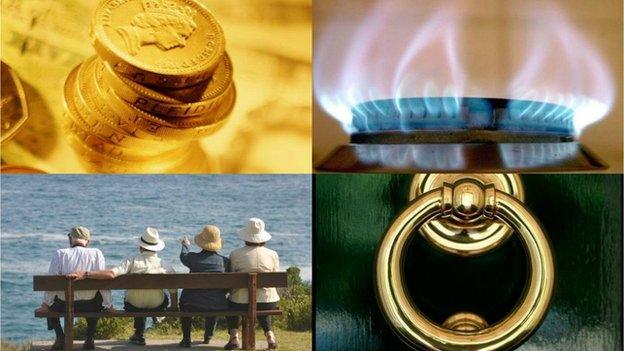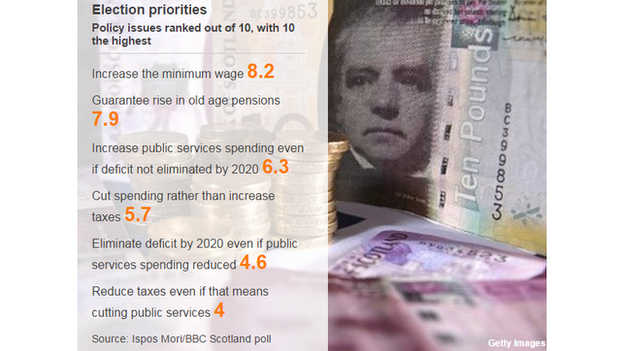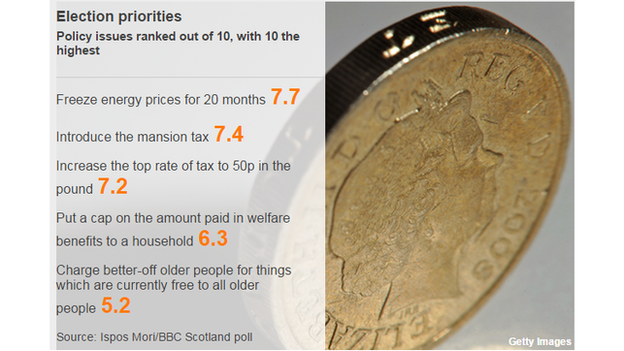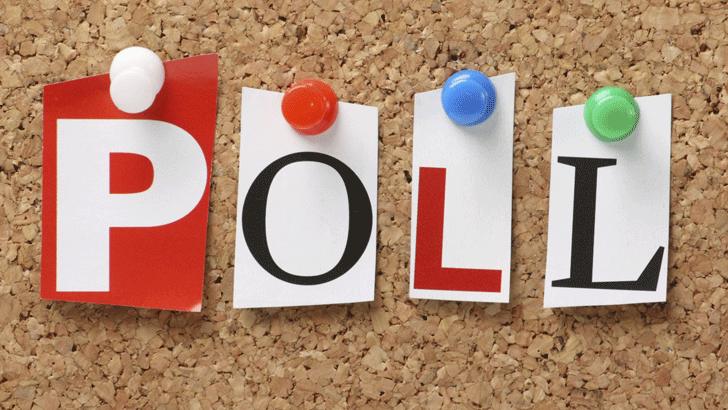Election 2015: Scottish voters rank top priorities
- Published

Voters in Scotland have been asked to rank their top priorities in the forthcoming general election in a poll commissioned by BBC Scotland.
People were asked to rank policy statements from one to 10, where one meant it should not be implemented, and 10 that it should be implemented immediately.
The most popular policy was to increase the minimum wage to £7.85 per hour.
This was closely followed by a guarantee that pensions would rise.
The study was run by Ipsos Mori, external, who contacted more than 1,000 adults between 19 and 25 March.
Click here to see the full results., external
Increasing the minimum wage for those aged 21 and over, from £6.50 to £7.85 per hour, scored 8.2 points out of 10 on the scale, while guaranteeing that pensions would rise over the next five years scored 7.9.
Policies like these, which involved targeted spending, were more popular than the general notion of increasing public spending.

The policy of increasing spending on public services "even if that means the deficit doesn't get eliminated by the end of the next parliament in 2020", scored 6.3 on the scale.
However, increasing public spending was still a more popular option than that of eliminating the deficit by the end of the next parliament in 2020 "even if that means reduced spending on public services." This was rated 4.6 out of 10 by those who took part.

Analysis
Brian Taylor, BBC Scotland Political Editor
So what do we learn? In general, it seems that you favour the protection of public spending, perhaps ahead of tax cuts or eliminating the deficit.
But you appear to like targeted public spending. For example, the most popular policy in our survey was increasing the minimum wage for those aged 21 and over.
Just behind that, a guarantee that old age pensions will rise over the next five years.
Perhaps this explains why the issue of the minimum wage has been so salient in this election contest - and reinforces the impression that a politician seeking popularity will take care in dealing with the question of pensions.

The least popular of all the economic policy statements was to reduce taxes "even if that means cutting public services", which received a score of 4.0.
Mark Diffley, Director of Ipsos MORI Scotland, said: "What's interesting, however, is that voters don't appear to be just thinking about their own situations in deciding election priorities.
"Support for increasing the minimum wage is actually highest among those who are retired (average score 8.6) while raising pension levels is the top economic priority for those aged 25-34 (7.9 out of 10) and the second highest economic priority of those aged 35-54 (also 7.9)."
Policies that involved wealthier people and companies contributing more to the economy received some of the highest scores.
A freeze on energy prices, phrased as "stop energy companies from increasing prices for 20 months," attracted a score of 7.7.

The idea of introducing a tax on homes worth more than £2m, commonly known as the mansion tax, scored 7.4 on the scale.
Increasing the top rate of tax to 50p in the pound for those earning more than £150,000 a year earned a rating of 7.2.
However, the idea of charging better-off older people for benefits such as free travel was not rated highly, with a score of 5.2.
Putting a cap on the total amount of welfare benefits a household can receive had a score of 6.3.
More findings from the study will be released on Wednesday.
- Published7 April 2015

- Published7 April 2015